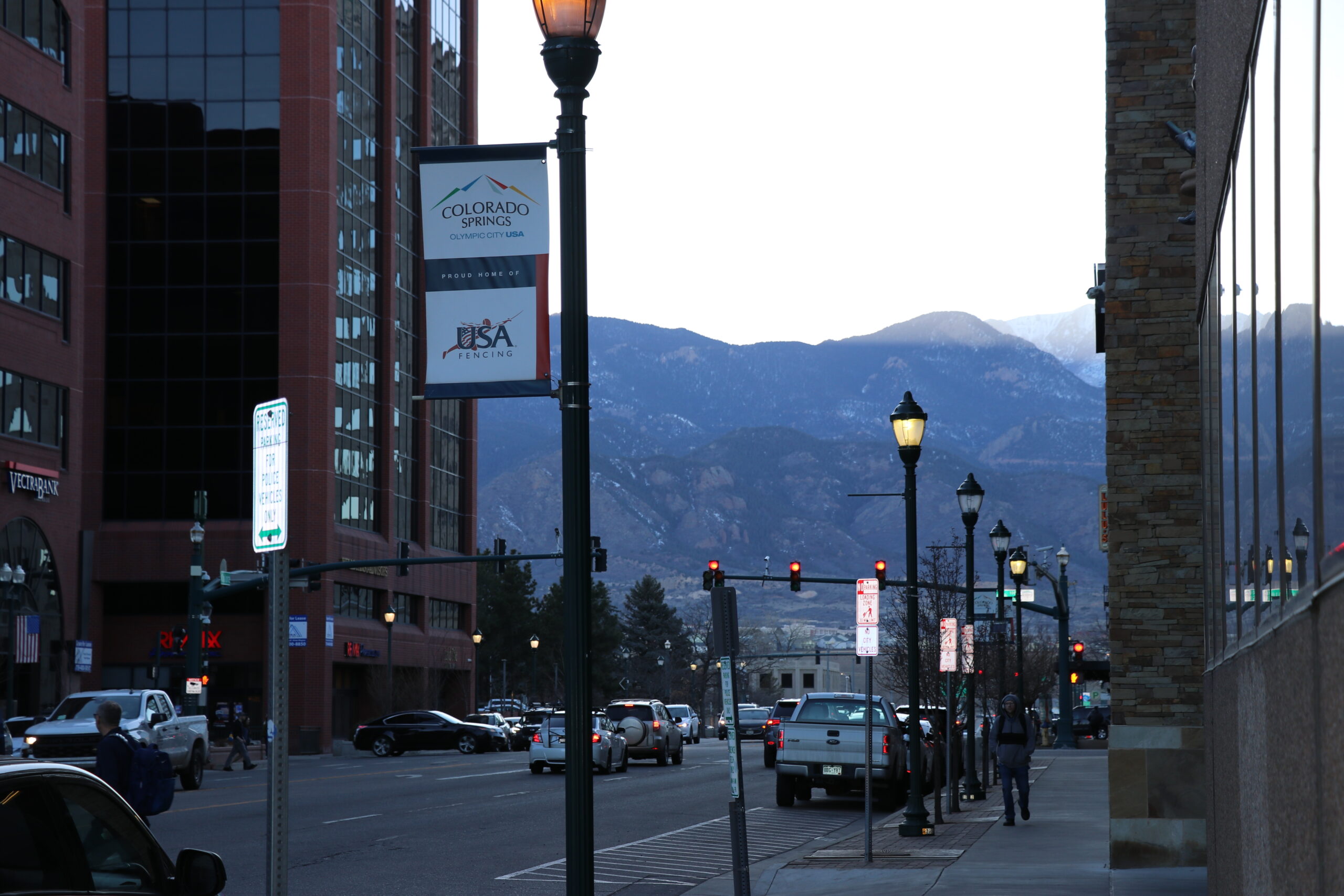In an era marked by political fatigue and mistrust, individuals across the United States are tasked with answering the question, “How can I improve my civic involvement?” There is a way you can do it right now in Colorado Springs without having to get off your couch.
On June 24, New Era Colorado prepared itself to answer this very question. With the help of the League of Women Voters (LWV), Citizens Project, and Common Cause Colorado, local leaders, elected officials, and engaged residents tackled the question head-on in a Democracy Roundtable. The conversation ranged from election reform to youth involvement. The answers that emerged were nuanced, hopeful, and a step toward bettering democracy as we know it.
One of the most prominent issues discussed was the timing of municipal elections in Colorado Springs. For some context, the City of Colorado Springs held a special municipal election on June 17, 2025, for a single ballot question over the Karman Line annexation. As noted by the LWV, voter turnout was only 24.67%, an extremely concerning low rate. To address this issue, El Paso County Clerk Steve Schleiker voiced that the city should move its election from April to November, arguing that a fall election would lead to higher turnout and better align the election cycles.
Many in attendance agreed, stating that the move should be presented to voters as a ballot initiative. This proposal is not without its opponents: A major challenger to the idea is Colorado Springs Mayor Yemi Mobolade. He is concerned that city candidates could get lost on a crowded November ballot; they could be buried under national, state, and county contests. He also raised concerns that costs would increase. Several attendees argued that the timing of the current city election cycle poses its own challenges.
Another hot-button issue was around vacancy committees. These groups are meant to fill open elected positions when an official resigns or is removed; however, some argue that this process creates a loophole for undemocratic appointments. As mentioned at the roundtable, vacancy committee appointments made up nearly a third of the state legislature in the 2025 General Assembly. As a result, many called for reforms that would prioritize transparency and public accountability.
So, what should the broader community take away from this event?
First, it is inherently clear that people across political identities, ages, and racial backgrounds want to be civically engaged. However, this process needs to be more accessible, transparent, and prioritized. As the roundtable showed, voter turnout doesn’t just depend on a community’s desire to be civically engaged but on the timing of an election, clear understanding and communication of key dates, and trust in the system. Community members should support reforms like moving election timing to the fall and closing loopholes in appointment systems, as these changes could dramatically improve local participation.
Second, it’s essential to nurture civic involvement early. One of two young participants emphasized that engagement in youth empowerment programs like student government will instill civic habits for a lifetime. Initiatives like “Day in the Life of a Legislator,” which is conducted by Palmer High School, are prime examples of how to light the spark for a lifelong interest in public service. Investing in youth civic education isn’t just a feel-good policy, but a fundamental, foundational step in building the democracy of tomorrow.
Third, civic safety and trust in our leaders must be a priority. In the wake of recent political violence across the country, some feel unsafe becoming civic leaders. State Rep. Amy Paschal (HD-18) acknowledged the fear, noting that local politics feels like a stage for political theater rather than a space for collaborative problem-solving. The community must respond by creating more inclusive, respectful, and nonpartisan environments for dialogue.
Finally, the Charter Review process. This is a prime opportunity for residents to voice their priorities. If there is something you want the city to address – pushing for election timing reform, increasing council members’ pay, or changing the district structure – email all city council members (including the at-large members)! The City Charter Review is in its beginning stages, and the earliest action would be in a year or in a ballot question in the April 2027 Municipal Election. You can access a template for your email here.
These conversations are just the beginning. The decisions made during this review will shape how our city functions for years to come. Truly, every resident should treat this process as an invitation to make real change and not just background noise.
Overall, the June 24 Democracy Roundtable was more than another conversation about politics. It was a call to action. As a young person, I was left with a new sense of urgency and responsibility. The discussions made clear that our systems are imperfect, but not unfixable.
Whether we’re talking about the timing of our elections or the transparency and safety in our systems, solutions can materialize with genuine collaboration among officials and the community.
This isn’t just another thing you can push to the ballot; it’s about showing up to shape the system. Colorado Springs has the opportunity to model what a truly participatory local democracy looks like. It starts with each of us taking the time to stay informed, get involved, and speak up.
The work of a democracy doesn’t end with a group at a roundtable. In fact, that is where it begins.

